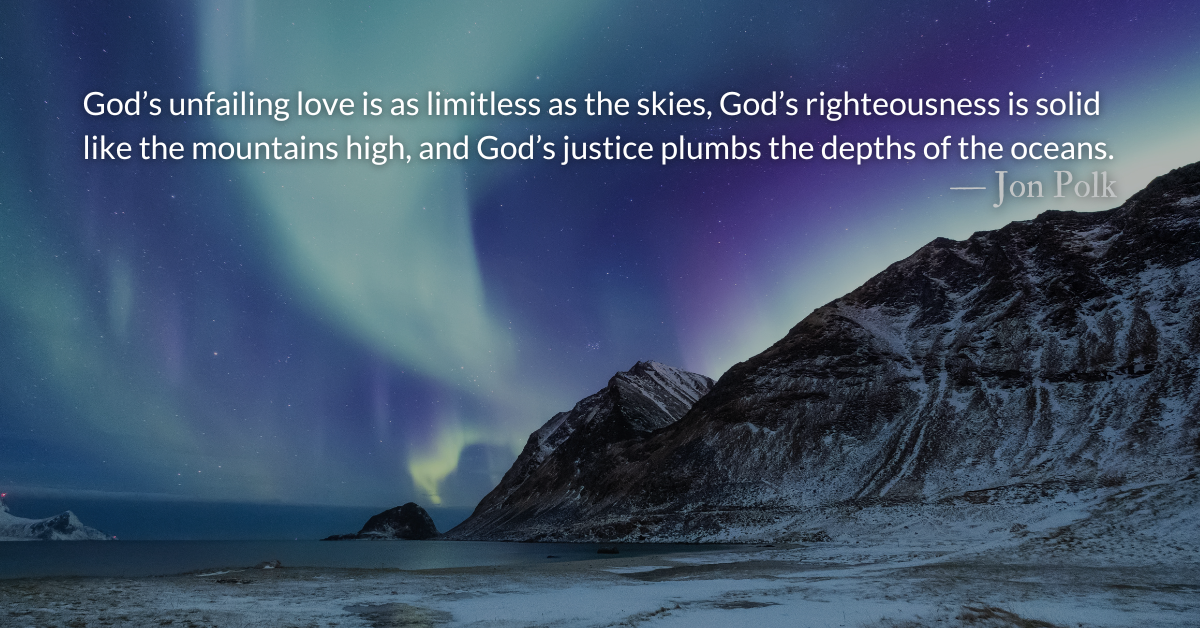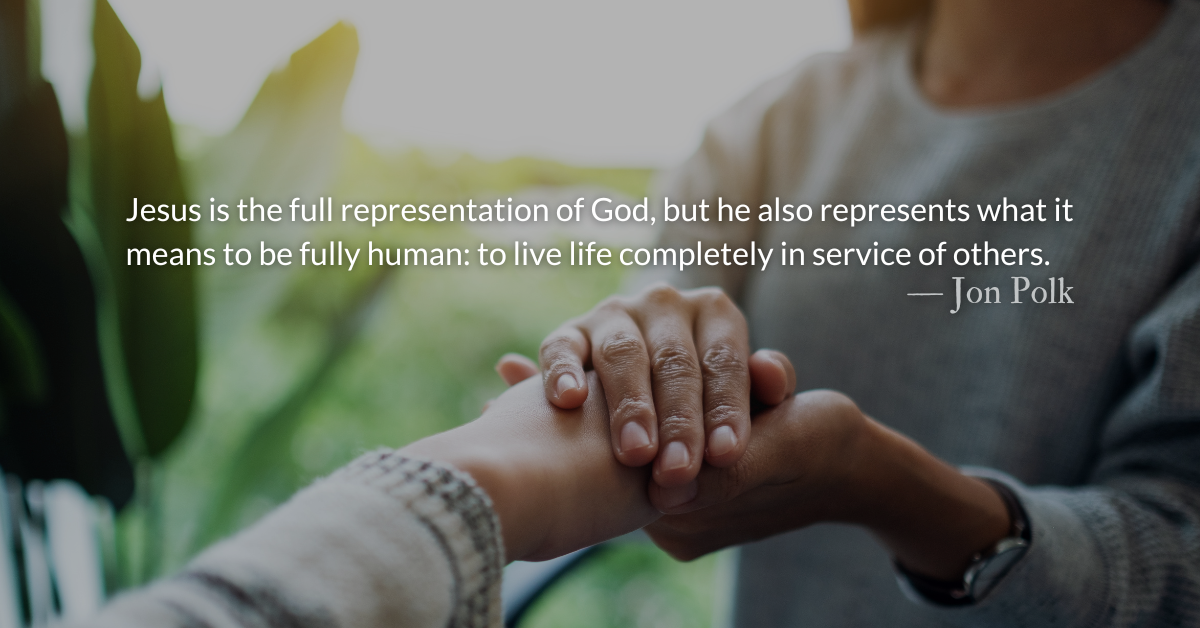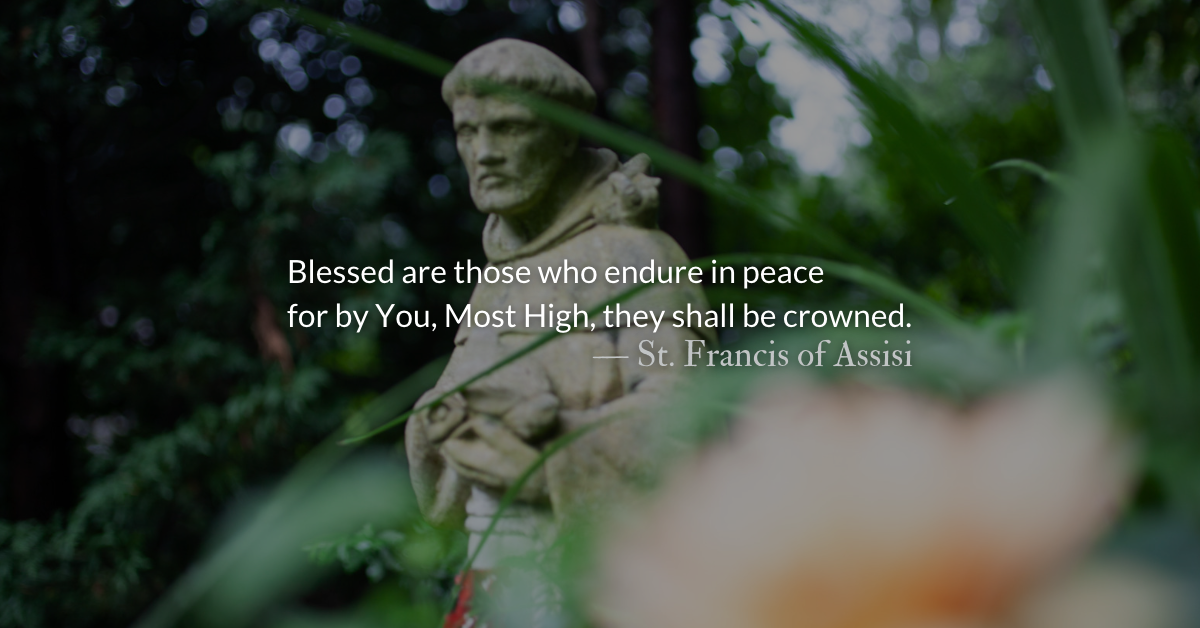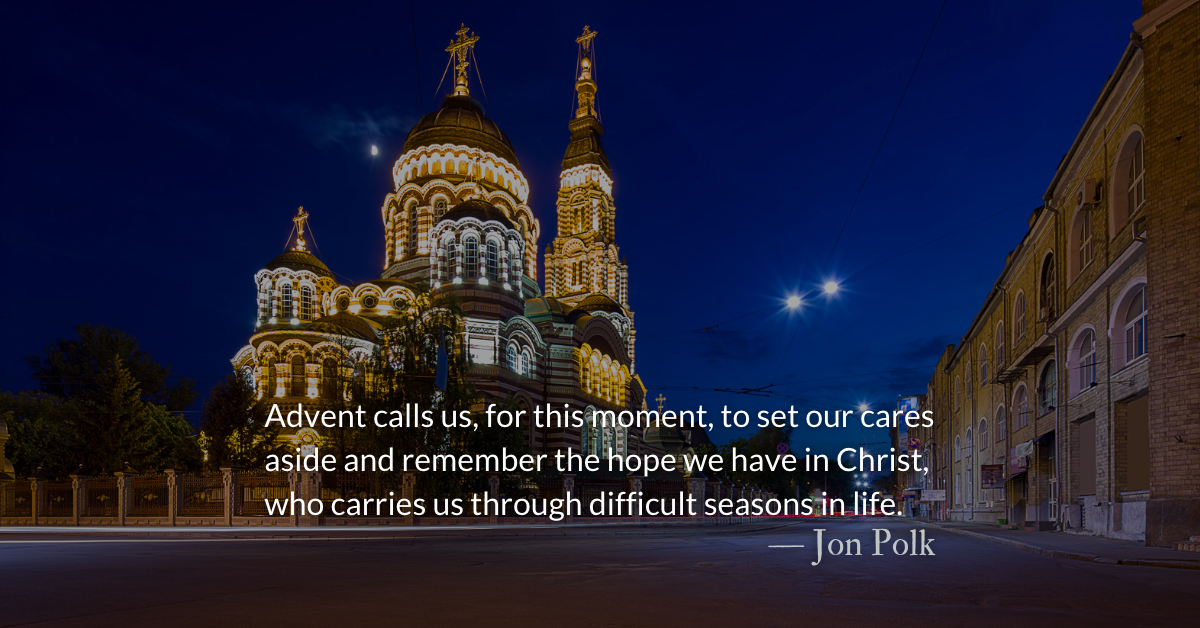Scripture Focus: Psalm 36:5-9
5 Your love, Lord, reaches to the heavens,
your faithfulness to the skies.
6 Your righteousness is like the highest mountains,
your justice like the great deep.
You, Lord, preserve both people and animals.
7 How priceless is your unfailing love, O God!
People take refuge in the shadow of your wings.
8 They feast on the abundance of your house;
you give them drink from your river of delights.
9 For with you is the fountain of life;
in your light we see light.
Reflection: Wide, Long, High and Deep
By Jon Polk
The Psalter is replete with references to the “two ways” of living, contrasting the wicked and the righteous, good versus evil. Chapter one, verse one starts it all off, “Blessed is the one who does not walk in step with the wicked.”
Indeed, this theme cuts a well-worn path throughout the Psalms and finds beautiful poetic expression here in Psalm 36.
Our psalmist opens with a customary lament about the presence and arrogance of evil in our world. Blinded by their own high opinions of themselves, the wicked act foolishly, plot evil, and pursue a sinful course of wrongdoing. All without regard to the presence and authority of God in the world.
But never fear, gentle reader! The virtues of God reign supreme! God’s unfailing love is as limitless as the skies, God’s righteousness is solid like the mountains high, and God’s justice plumbs the depths of the oceans. God’s love is indeed woven into the fabric of our world, preserving all of creation.
Why is there so much papyri in these ancient Psalms dedicated to the eternal struggle between the righteous and the wicked?
Could it be that we are constantly reminded of the present reality of evil, the influence of the Accuser, or the bold arrogance of the self-righteous? Could it be that even in Christ, we are not promised a carefree existence, safe from struggle or difficulty? Could it be that we are weary and long to feast in God’s house, drink from God’s fountain of life, and witness God’s justice roll down like a river?
Could it be also that were it not for that same love, faithfulness, and righteousness of God, we ourselves would be counted among the number of the wicked?
The psalmist paints a portrait for us of the radical, joyous, and inclusive love of God, a love that welcomes all to find refuge in God’s wings. As Paul reminds the church in Ephesus, we were all once far away from God, without hope, but through Christ we have been brought near to God. We can truly celebrate with humble thanksgiving the God who sustains us and continues to love us.
So, if your world is unstable, your prospects bleak, or if you need a little more strength to get by, take heart and be reminded today of “how wide and long and high and deep is the love of Christ” (Eph. 3:18).
Music: “The Love of God” by Rich Mullins
Divine Hours Prayer: The Call to Prayer
Taste and see that the Lord is good; happy are those who trust in him! — Psalm 34.8
– From The Divine Hours: Prayers for Summertime by Phyllis Tickle.
Today’s Readings
1 Kings 16 (Listen 5:31)
Psalms 36 (Listen 1:29)
This Weekend’s Readings
1 Kings 17 (Listen 3:14), Psalms 37 (Listen 4:21)
1 Kings 18 (Listen 7:08), Psalms 38 (Listen 2:14)
Read more about Make God’s Love Evident
There is great wickedness in the world. Yet, in such a world, the psalmist proclaims God’s love.
Read more about Becoming Light
We can have hope because God has love for us as his motivation. The core of who God is, is love.











